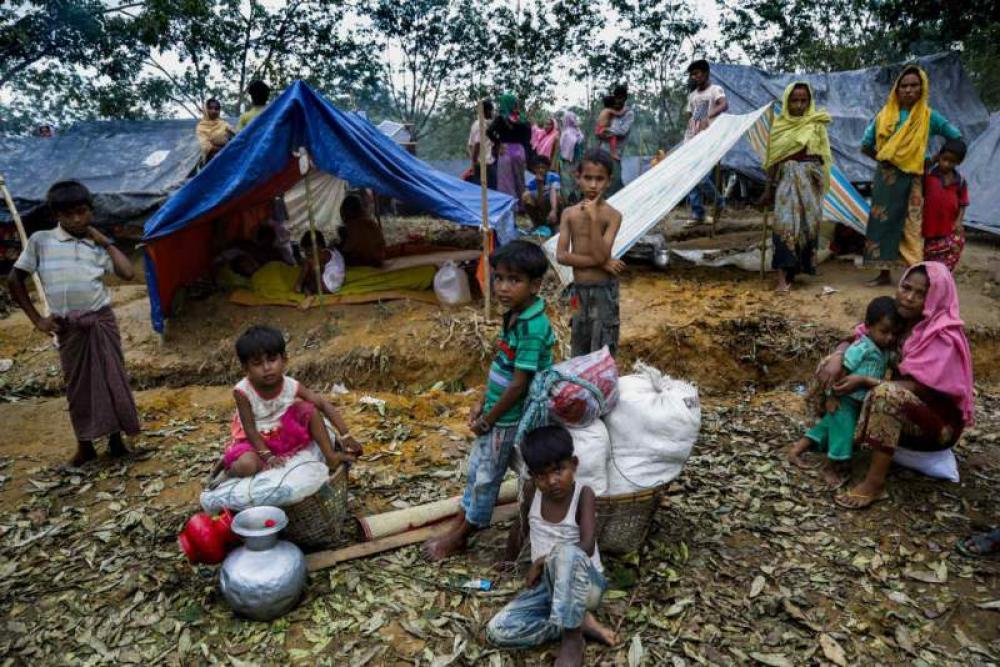Just Earth News | @justearthnews | 30 Oct 2017, 08:12 am Print

According to Pintu Kanti Bhattacharjee, who heads the family planning board in Chittagong's Cox's Bazar district, most Rohingya families consists of a large number of members, sometimes up to 19.
He points out at the lack of education as a contributing factor to the Rohingya population crisis.
The Rohingyas started to infiltrate Bangladesh almost three months ago, after war broke out in the Rakhine province on the nation.
Both the Bangladeshi and Rohingya people have blamed the Burmese government of carrying out the atrocities as pictures of burnt villages and mutilated bodies have surfaced on the internet, but the latter has downplayed the allegations.
According to Myanmar officials, arson were carried out by Rohingya militants, who go by the name Arakan Rohingya Salvation Army or ARSA.
The group is locally known as Harakah al-Yaqin and has managed to already stage two large-scale attacks.
Experts feel that the new age gun wielding Rohingyas are more prone to be sucked into terrorism and are likely to pledge alliance with global terror networks, thus exacerbating their already vulnerable state of affairs.
However, terrorism is not the only thing the Rohingyas need to watch out for, their over growing population must also be kept in check, experts feel.
For a start, more people mean more mouths to feed and that can cause harm to Bangladesh by depleting their source.
The reluctance among the refugees to use contraceptives, mostly male condoms, is also hampering Bangladesh's chances, who now sees sterilization as a better preventive method.
Elaborating the plan, Bhattacharya said that the local board has requested the national government to to approve a plan to launch vasectomies for Rohingya men and tubectomies for women.
Speaking to Al Jazeera, a female refugee said, "I spoke to my husband about birth control measures. But he is not convinced. He was given two condoms but he did not use them."
"My husband said we need more children as we have land and property in Rakhine. We don't have to worry to feed them," she added.
Bangladesh's own domestic sterilization programme offers 2,300 taka ($28) and a traditional lungi (a piece of cloth) to a man who's willing to under the procedure.
The programme is widely successful as data shows that almost 250 people opt for it every month in Cox's Bazar district.
If agreed upon, the same could be tried on the Rohingyas.
Image: WFP/Saikat Mojumder
- Pakistan: Police recover two bullet-ridden bodies from Balochistan
- IDF strikes Hezbollah targets in Lebanon after projectile fire toward Northern Israel; 31 killed
- Pakistan: Armed gunmen kidnap 14 workers during coordinated raids in Balochistan
- ISIS-inspired plot foiled in UK: Two men get life sentences for targeting Jewish community
- India rejects allegations, urges Pakistan to tackle its ‘home-grown ills’





-1763561110.jpg)
